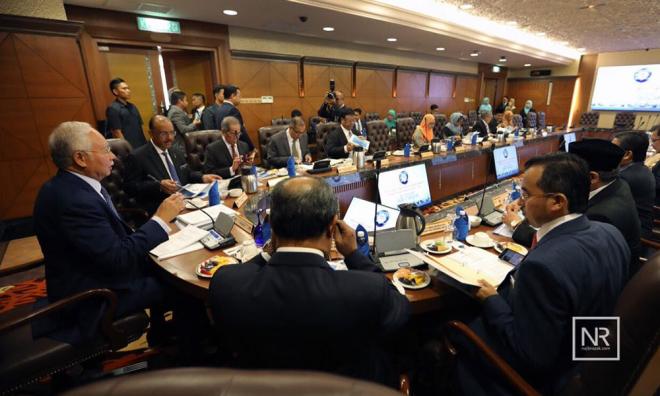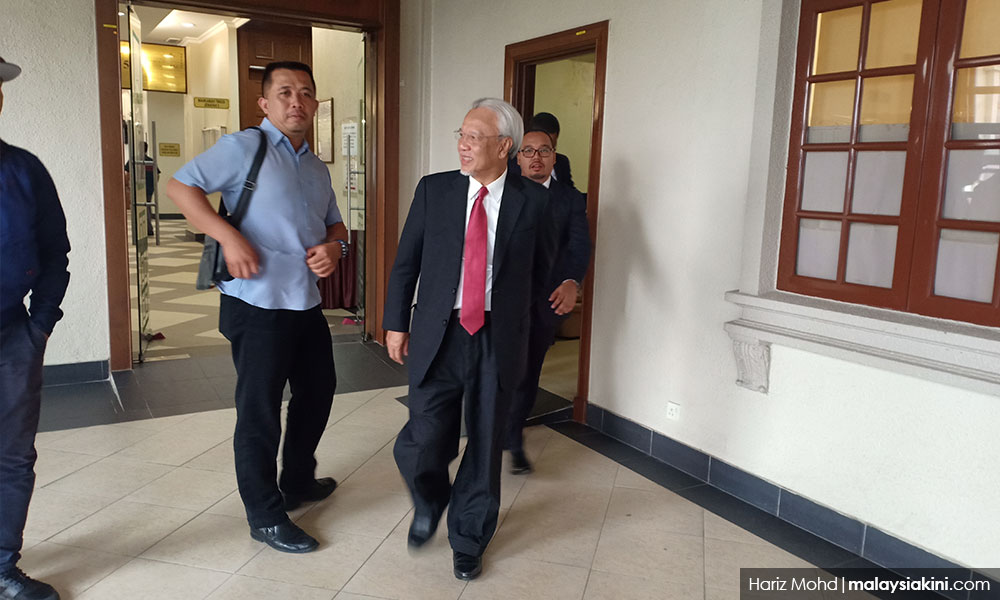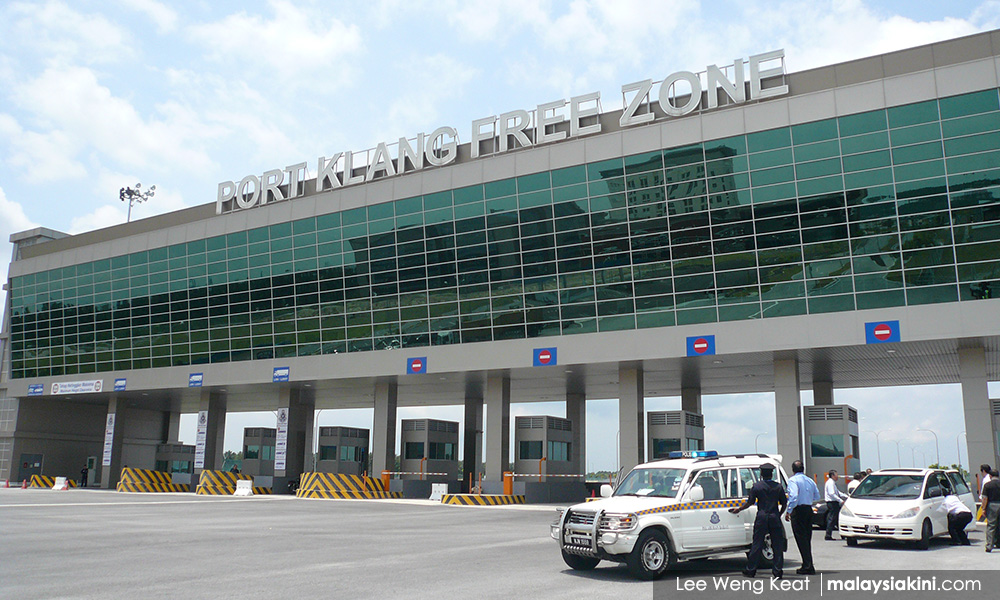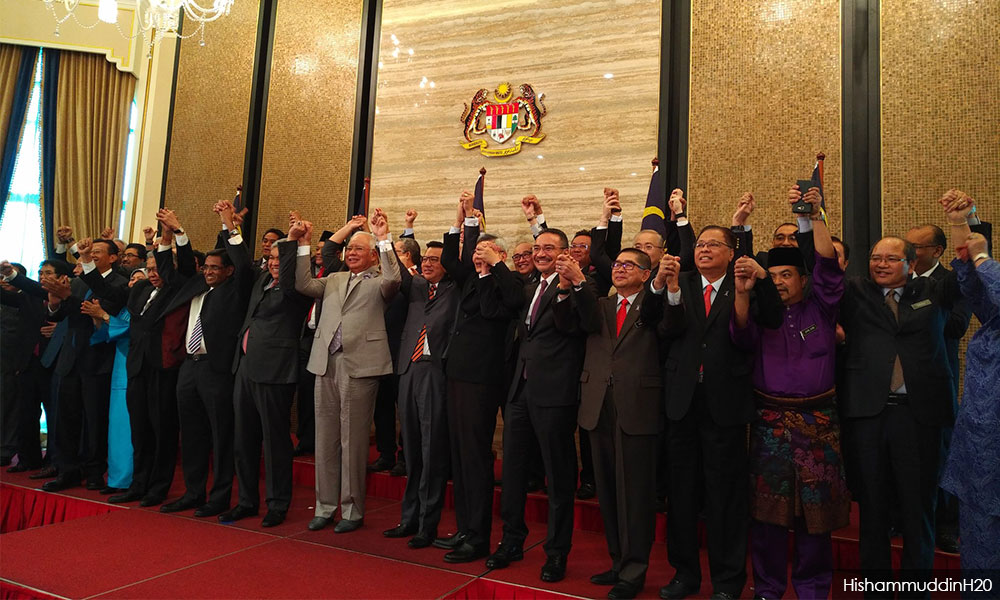
The evidence adduced in three high-profile trials over the past three months make interesting reading. The verbal exchanges and documents have given insights into the many facets of political and family lives.
Malaysians have learnt how to placate an angry wife, maintain a fleet of the family’s luxury cars and big bikes; having three wives would mean one would not abscond; bribes in the form of political donations, and money paid quid pro quo for approvals.
More importantly, the course of events that have come to light is a microcosm for how the government was previously run under the BN regime.
“What you don’t know doesn’t hurt” is a common expression, but if May 9 did not happen, no one would have known and no one would have been hurt. Now that the can of worms has been opened (read: a vessel full of maggots), we re-visit the events and size up the misery and hurt that it has caused and continues to cause us.
To tread around laws related to contempt, we are not touching on the case itself, but on issues which are already in public domain.
We specifically want to touch on the different interpretations of the term “collective responsibility” and how it has and will continue to affect us all – the citizenry at large.
Cabinet collective responsibility, also known as collective ministerial responsibility, is a constitutional convention in parliamentary systems that members of the cabinet must publicly support all governmental decisions made in cabinet, even if they do not privately agree with them. A minister who cannot abide by collective responsibility is expected to resign.
I agreed that they could not openly disagree and remain in the cabinet, but how many of them ever objected or spoke out on issues?

The first “proponent” was former second finance minister Ahmad Husni Hanadzlah (above, centre) who told the court that he did not tell the complete truth about his resignation in June 2016 because he wanted “to cover” for the then prime minister Najib Abdul Razak amid concerns on how 1MDB and its former subsidiary SRC International were managed.
In court, he admitted: “I wanted to hide the true story. I wanted to cover the prime minister.”
On Wednesday, the court was told that the cabinet approval of a government guarantee on SRC’s first loan application for RM2 billion to Retirement Fund Incorporated (KWAP), was given before the company had formally appointed its directors.
The court was told that the cabinet had approved the government guarantee to back the loan to SRC on Aug 17, 2011, six days before the five-member SRC board of directors met for the first time on Aug 23.
Didn’t any one minister of the Najib’s 38-member cabinet ask for details of the company? Didn’t one ask for a due diligence report on the company and its directors? Didn’t even one question what projects the money was going to be used for?
The issue of government guarantees is nothing new. Years earlier, there was the issue of the government guaranteeing Port Klang Free Zone (PKFZ) bonds totalling in excess of RM5 billion.

While there was a dispute whether they were “letters of guarantee” or “letters of comfort”, at the end of the line, the Treasury (read: taxpayers) coughed out the money and a government regulatory body, the Port Klang Authority (again, the taxpayers) is contributing all its profits of about RM200 million annually towards payment.
How many red flags would they have sighted if ministers had put themselves in the shoes of “ordinary men of business”? Never mind the party stalwarts who did not want to slight the prime minister, but what about the two “independents”? Did they also seek to curry favour?
Both had vast corporate and business experience – Paul Low, was the de facto integrity minister, and Idris Jala, the man who supposedly revolutionised development via Pemandu. Didn’t they have to say anything, especially Low who had full knowledge of the PKFZ affairs?
In the commercial world or in any transaction, 'due diligence' means taking necessary precautions to avoid the commission of an offence or default. “Due diligence” is an investigation or audit of a potential investment or product to confirm all facts and that might include the review of all transactions, including financial records. 'Due diligence' refers to the research done before entering into an agreement or a financial transaction with another party.
In the current case, it was a simple process; and if SRC had been asked, it would not have been difficult to provide. Didn’t it sound odd that there was no working paper and the basic requirement – registration with the Companies Corporation of Malaysia and its memorandum of articles?
Didn’t it occur to the ministers that they needed more documents to come to an educated and knowledgeable decision? Surely, the cabinet should not have anything to do with any individual or body corporate without being given a true picture of the organisation.
Why did they all “angkat tangan” (raise their hands) and shout “setuju” (agree) in unison?

A lot of water has flown under the bridge over the past 18 months. Except for a handful of Najib’s ministers (himself included), others are walking around drawing their pensions and are involved in business. They continue as if they did nothing wrong and do not owe anyone an explanation.
They should take cognisance of the fact that because they were tardy, irresponsible, negligent and unreliable as members of the cabinet, we, the citizens of this country, have been left to fill the deep gaping financial holes they created.
R NADESWARAN says that if simple steps had been taken by instituting good governance practices, the country would not be in the financial mess it is in right now. Comments: citizen.nades22@gmail.com. - Mkini



No comments:
Post a Comment
Note: Only a member of this blog may post a comment.